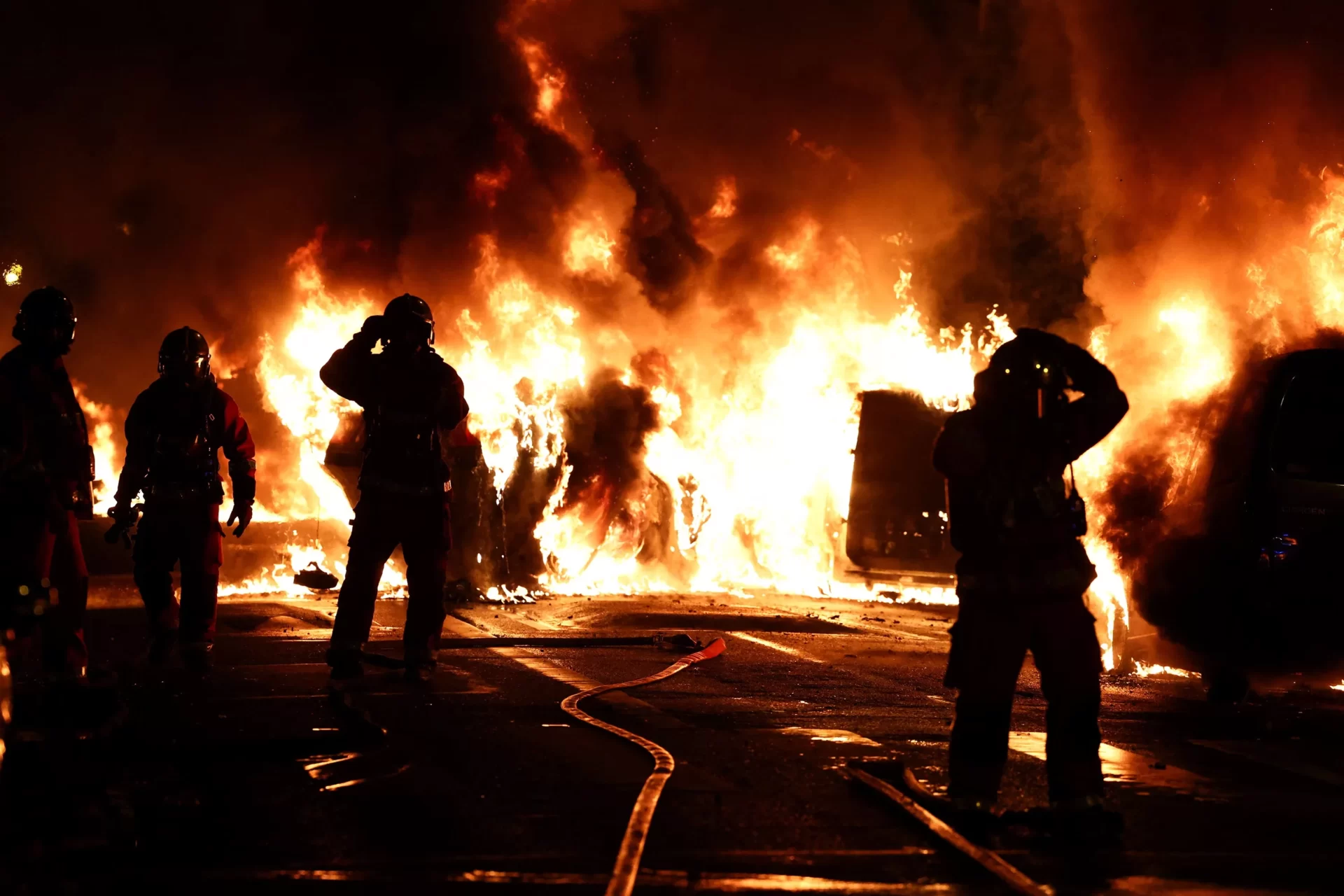For five days, since Tuesday this week, riots broke out across the whole of France. At the moment, more than 1,300 people have been arrested, while looting, vandalism and damage to property, restaurants and cafes are recorded in French cities, and videos of car explosions and attacks on citizens appear. BBC News reports that about a third of those arrested are young people under the age of 18. Meanwhile, the French Interior Ministry called in 45,000 police officers to quell the unrest.
Unrest in France – Foreign Office advises Britons to refrain from traveling to France anytime soon
Riots were triggered by the murder of 17-year-old Nahel M by French police in the commune of Nanterre after he, according to the suburban prosecutor, did not stop the car on orders from the police.
According to the legislative amendment of the act on police rights in the use of arms, released in 2017, the police did not act illegally. The law was passed in the wake of a 2016 attack on a police officer in a residential area in the suburbs of Paris, which was followed by protests and demands from police unions for a tough response from the state. The law describes the following cases in which the police have the right to use pistols against citizens: when the driver or passengers of the vehicle do not follow the order to stop on the road, or when the police conclude that citizens are putting the health and life of officers at risk.
It is this law, along with the lack of public investment and the development of the French suburbs, where most migrants live, that caused the clashes between police and protesters this week, experts say.
Ravina Shamdasani, the Spokesperson of the office of the UN High Commissioner for Human Rights, asked the French authorities to “tackle the deep problems of racism and discrimination in law enforcement.” In response to the UN statement, the French government called the allegation unfounded and pointed out that ” France and its police fight resolutely against racism and all forms of discrimination.”
President Immanuel Macron blamed vandalism and brutality of the riots on social media and video games, which he said have an adverse effect on young people: “It sometimes feels like some of them are re-living in the streets the video games that have intoxicated them.”
Meanwhile, the UK’s Foreign Office has issued new advice for British tourists to France amid the ongoing unrest: “avoid areas where unrest is occurring and make sure their travel insurance ‘provides adequate coverage'”.
Unfortunately, at the moment there is a very limited amount of analytics about the situation in France. From the main comments of British experts, the following can be distinguished:
Fraser McQueen, a lecturer in French studies at the University of Edinburgh, argues that the French authorities’ response to the UN statement is “unconscionable” and that systemic racism in the French state police is confirmed by bodies such as the French ombudsman and NGOs, for example, Open Society, Human Rights Watch and Amnesty International. He cites data from last year’s presidential election, in which roughly 68% of French police officers voted for far-right candidates. At the same time, McQueen does not support vandalism and brutality of the protesters and believes that, although the reasons for this can be explained from a historical point of view, such measures should not be an option.
Andrew Hussey, professor of cultural history at the School of Advanced Study at the University of London, explains the linguistic problem of France’s political division. He describes how police unions often call the situation a “war zone,” which in turn draws criticism from many left politicians who see such rhetoric as unconstructive and even dangerous. The same rhetoric is often used by Marine le Pen, the main candidate in the French presidential election, who lost to Macron in 2022. However, the “language of war”, as Hussey argues, is also characteristic of the representatives of the French suburbs, who see this situation as a war against themselves – against the people living in suburban communes.
The current riots in France are the largest since the 21-day riots of 2005, again caused by police clashes with residents of poor suburbs and unemployment. Regardless of the outcome of the protests, today’s unrest poses a grave challenge to Macron’s presidency, with increasing vandalism and protester aggression, a slew of anti-immigration tweets and social media posts, denial of poor suburbs and unemployment by French officials, and the rising popularity of Marine Le Pen.
Time will tell what the end of this story will be, but one thing is certain: these protests will determine the future political course of France, and perhaps set a precedent in the rest of Europe. What the precedent is going to be, we will find out in the coming days and weeks.





